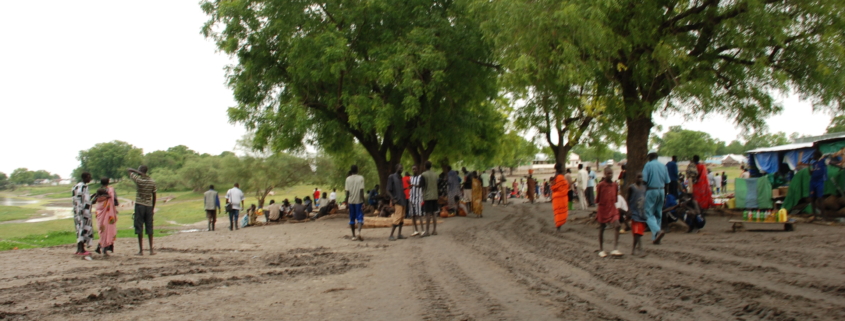The article offers a nuanced account of how identities are negotiated and contested in South Sudan, by focusing on how Murle and ŋalam identities were deployed in different ways in different places in overlapping periods during a time of armed conflict. The article focuses on the 2012-2014 period of war between the South Sudanese government and a largely Murle rebellion. Read more here
About Diana Felix Da Costa
This author has yet to write their bio.
Entries by Diana Felix Da Costa
Introduction Murle society is non-hierarchical and political power is diffused to the extent that there are no institutional leadership roles. It is thus often represented as lacking credible and legitimate governance structures. While Murle society is acephalous and egalitarian, in that there is no single leader like a king and decisions are instead taken collectively, there are clear authority structures that should be understood.[1] The above representations are, quite significantly, part of the narrative that…
This article investigates contestations over the roles and legitimacy of gangs within the United Nations Mission in South Sudan (UNMISS) Protection of Civilians (PoC) site in Bentiu, South Sudan. Drawing on qualitative interviews, it argues that ‘gangs’ represented the medium through which everyday struggles and processes of social contestations were negotiated between youth, elders, and protection actors. Prevailing narratives of gangs as violent criminal entities structured conflict with elders and protection actors, but to their…
International, national and local political discourses often portray the Murle community as principal aggressors and the source of much of the instability affecting former Jonglei State in South Sudan. Although such negative stereotypes are partially driven by actual events, they are also manipulated by certain groups to serve political purposes and informed by the assumption that there is a lack of credible authority structure among the Murle. Changing Power Among Murle Chiefs investigates how Murle…
This paper investigates the Intergovernmental Authority on Development (IGAD)’s initiative to provide 199 civil service support officers (CSSOs) to South Sudan, where they are twinned with counterparts across many ministries and sectors to develop core government capacity in a coaching and mentoring scheme. Download
Some Infos
Lorem ipsum dolor sit amet, consectetuer adipiscing elit. Aenean commodo ligula eget dolor.
Pages
- About Our County Profiles
- Blog
- Case Studies Grid
- Central Equatoria
- Conflict Sensitivity Resource Facility South Sudan
- Contact Us
- Contribute a Repository Article
- County Profile HTML links
- County Profiles
- COVID-19 HUB
- Covid-19 information page
- CSRF About Us
- CSRF Helpdesk
- CSRF Helpdesk Form
- CSRF Login
- Dashboard
- Deliverables
- Demo
- Events
- Forgot password
- Guides, Tools and Checklists
- Helpdesk
- Home
- Latest
- Looker Studio
- Subscribe

